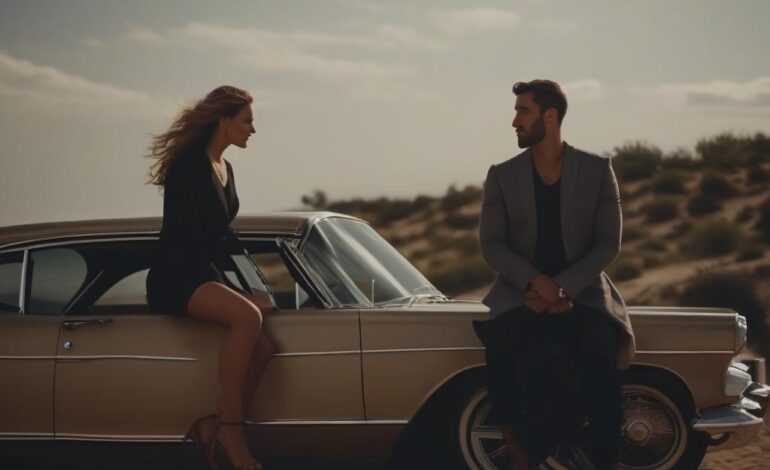The Use of “Unique” in English: Understanding Its Correct Usage and Common Misconceptions
-
Table of Contents
- The Use of “Unique” in English: Understanding Its Correct Usage and Common Misconceptions
- What Does “Unique” Mean?
- The Correct Usage of “Unique”
- The Misconception: “An Unique”
- Commonly Asked Questions about “Unique”
- 1. Can “unique” be used in the plural form?
- 2. Can “unique” be used to compare two or more things?
- 3. Can “unique” be used to describe people?
- 4. Can “unique” be used to describe something that is rare but not one of a kind?
- 5. Can “unique” be used to describe negative qualities?
- Summary
- Q&A
- 1. Can “unique” be used in the plural form?
When it comes to the English language, certain words can be quite tricky to use correctly. One such word is “unique.” Many people struggle with whether to use “a unique” or “an unique” in their sentences. In this article, we will delve into the correct usage of “unique” and address common misconceptions surrounding its usage. By the end, you will have a clear understanding of how to use this word effectively in your writing and conversations.
What Does “Unique” Mean?
Before we dive into the correct usage of “unique,” let’s first establish its meaning. “Unique” is an adjective that describes something as being one of a kind or having no equal. It signifies that the object or concept being referred to is unparalleled or distinct in some way.
The Correct Usage of “Unique”
When it comes to using “unique” in a sentence, it is important to remember that it is an adjective. As such, it should be used to modify a noun or a noun phrase. Here are some guidelines to help you use “unique” correctly:
- Always use “unique” before a noun or a noun phrase.
- Do not use “unique” after a verb.
- Use “unique” to describe something that is truly one of a kind and has no equal.
Let’s look at some examples to illustrate the correct usage of “unique”:
- Correct: She has a unique talent for playing the piano.
- Correct: The Eiffel Tower is a unique landmark in Paris.
- Incorrect: Her talent for playing the piano is unique.
- Incorrect: The Eiffel Tower is unique.
In the incorrect examples above, “unique” is used after a verb, which is not the correct usage. Remember, “unique” should always be used to modify a noun or a noun phrase.
The Misconception: “An Unique”
One common misconception surrounding the usage of “unique” is whether to use “a unique” or “an unique.” The confusion arises because “unique” begins with a vowel sound, but it is not always appropriate to use “an” before it.
The general rule for using “a” or “an” is to use “a” before words that begin with a consonant sound and “an” before words that begin with a vowel sound. However, there are exceptions to this rule. In the case of “unique,” the correct usage is “a unique” rather than “an unique.”
The reason for this exception lies in the pronunciation of “unique.” Although it begins with a vowel letter, the “u” in “unique” is pronounced as a consonant sound, similar to the “y” sound in “you.” Therefore, we use “a” instead of “an” before “unique.”
Let’s look at some examples to clarify this misconception:
- Correct: He has a unique perspective on the issue.
- Correct: She found a unique solution to the problem.
- Incorrect: He has an unique perspective on the issue.
- Incorrect: She found an unique solution to the problem.
By using “a” instead of “an” before “unique,” you will ensure that your sentences are grammatically correct and sound natural to native English speakers.
Commonly Asked Questions about “Unique”
Now, let’s address some commonly asked questions about the usage of “unique” to further clarify any doubts:
1. Can “unique” be used in the plural form?
No, “unique” is an adjective that describes something as being one of a kind. It does not have a plural form. Therefore, it is incorrect to say “uniques.” Instead, use alternative phrases such as “one-of-a-kind” or “distinctive” when referring to multiple unique items or concepts.
2. Can “unique” be used to compare two or more things?
No, “unique” implies that something is singular and has no equal. Therefore, it is incorrect to use “unique” to compare two or more things. Instead, use comparative adjectives such as “more unique” or “less unique” when making comparisons.
3. Can “unique” be used to describe people?
Yes, “unique” can be used to describe people. It can be used to highlight someone’s exceptional qualities, talents, or characteristics that set them apart from others. For example, “She has a unique personality that attracts people.”
4. Can “unique” be used to describe something that is rare but not one of a kind?
No, “unique” specifically refers to something that is one of a kind and has no equal. If something is rare but not truly one of a kind, it would be more appropriate to use words like “rare,” “uncommon,” or “scarce” to describe it.
5. Can “unique” be used to describe negative qualities?
Yes, “unique” can be used to describe negative qualities or characteristics. It simply means that the quality or characteristic being described is distinct and unparalleled, regardless of whether it is positive or negative. For example, “He has a unique ability to make everyone around him feel uncomfortable.”
Summary
In conclusion, “unique” is an adjective that describes something as being one of a kind or having no equal. When using “unique” in a sentence, remember to always use it before a noun or a noun phrase. Do not use it after a verb. Additionally, the correct usage is “a unique” rather than “an unique” due to the pronunciation of the word. Avoid using “unique” in the plural form or to compare two or more things. Instead, use alternative phrases and comparative adjectives. “Unique” can be used to describe people and both positive and negative qualities. By following these guidelines, you will be able to use “unique” correctly and effectively in your writing and conversations.
Q&A
1. Can “unique” be used in the plural form?
No, “unique” is an adjective that describes something as being one of a kind. It does not have a plural form. Therefore, it is incorrect to say “uniques.” Instead, use alternative phrases such as “one-of-a-kind



